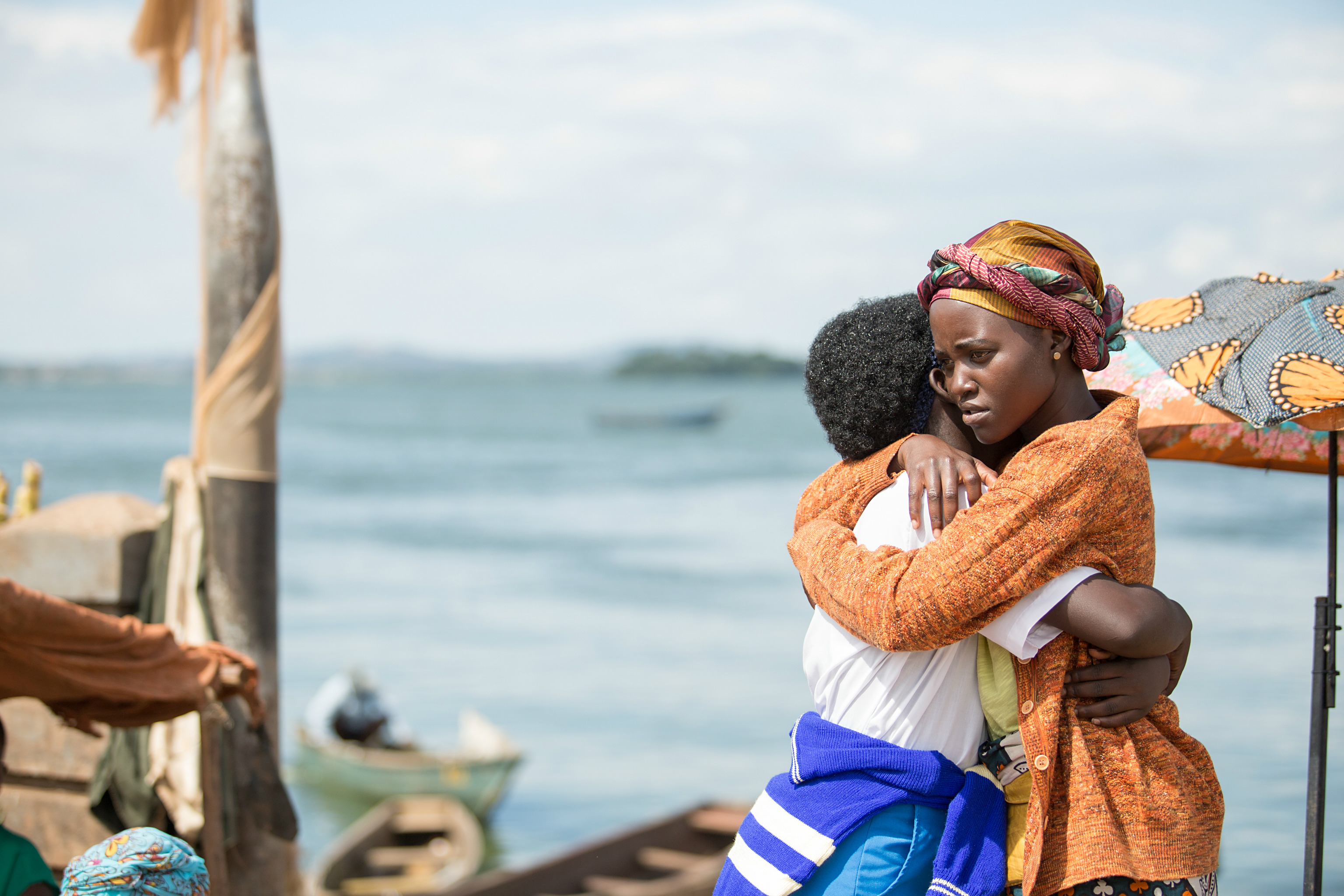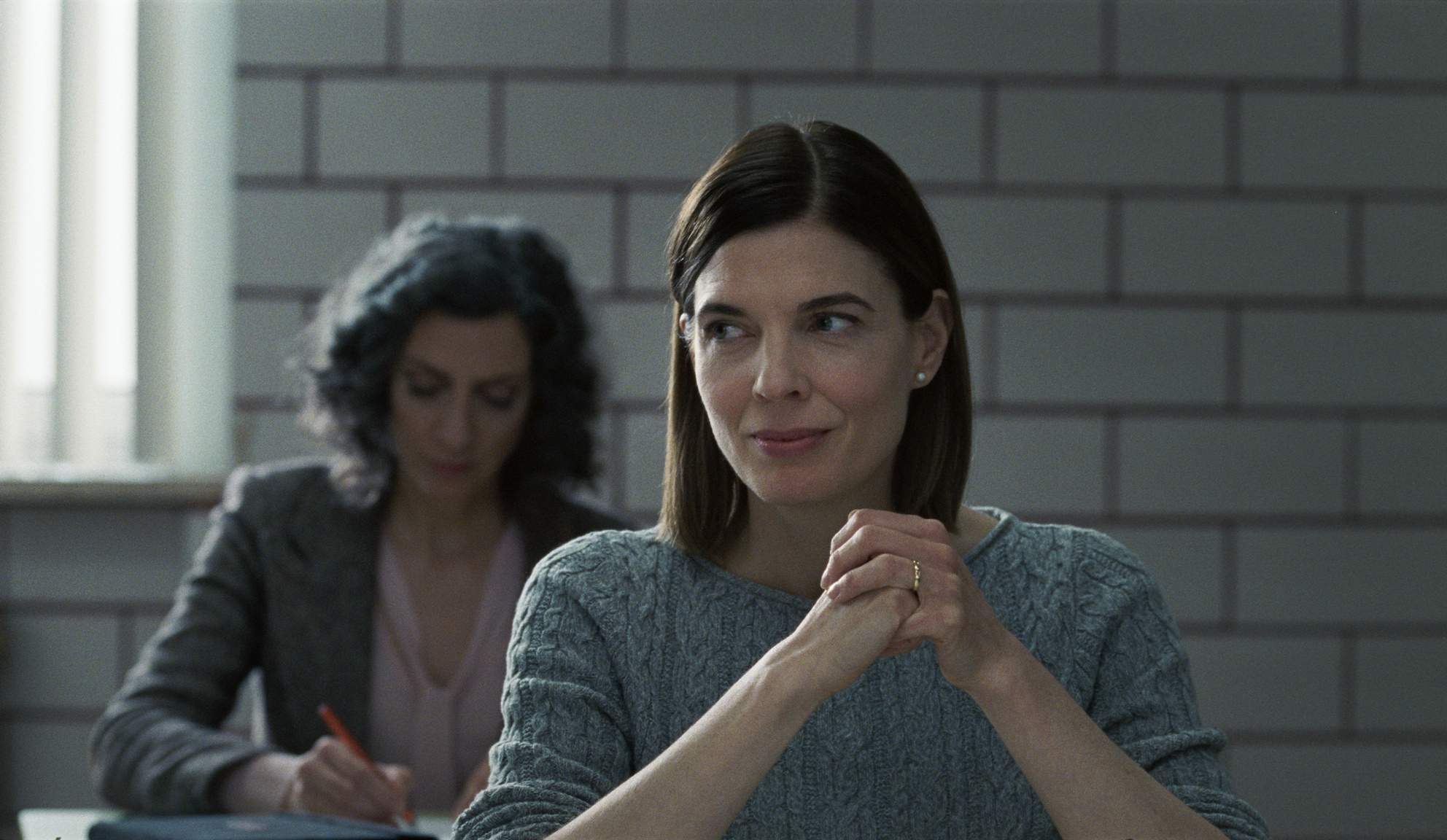-

Lion, directed by Garth Davis, premiered at TIFF and is scheduled for North American release on November 25, 2016.
-

Queen Of Katwe, directed by Mira Nair, premiered at TIFF and was released in North America on September 10, 2016.
-

Boundaries, directed by Chloé Robichaud, premiered at TIFF and was released in North America on September 10, 2016.
Inside TIFF 2016: Underdogs and Unexpected Places
Three poignant films to discover.
Leaning into her microphone at the post-premiere press conference of Lion, the first feature film by Australian director Garth Davis, actor Nicole Kidman admitted, “I don’t think there is a Hollywood anymore.” Hollywood, Kidman mused, is a bit of a ghost town, overlooked by international modern filmmakers (“We’re all scattered around the world and we make films all around the world,” she said). Yet, in Kidman’s perspective, now is the Golden Age of the film festival: “I think film festivals are so important right now because it’s very hard for films to be discovered,” she said.
Lion is itself a true story about discovery—and how to find what one seeks against humbling odds. It follows five-year-old Saroo (played by the heart-wrenchingly cute Sunny Pawar), who becomes separated from his family in rural India after falling asleep on a train bound towards Calcutta. Scared and unable to find his way home, Saroo is brought to an orphanage and soon adopted by an Australian couple, played by David Wenham and Kidman (who leans into her personal life as a parent of adoptive children to bring sincere emotional heft to the role). Saroo grows up happy (his adult self is played by Dev Patel) yet determined to locate his first home and find his birth mother once again. To do so, he uses his early memories and a pin-board of gathered clues, but mostly Google Earth. Producer Harvey Weinstein previously predicted Lion would rake in “eight or nine” Oscars, yet while the storyline is stirring (there were tears in the theatre), it is also somewhat slim—as much an ode to the wonders of modern technology’s connective power as it is about Saroo’s personal tale. (Davis admitted the movie was quite a hit with Google HQ).
Oddly enough, Disney’s new Queen of Katwe, directed by India’s Mira Nair, thematically echoes Dev Patel’s first TIFF triumph: Slumdog Millionaire. Newcomer Madina Nalwanga stars as Phiona Mutesi, a dreamy and idiosyncratic teenager living in Uganda’s slums who demonstrates a talent for chess that her coach (David Oyelowo) encourages her to cultivate. As she begins to compete as the impoverished underdog at hoity-toity chess tournaments, Phiona suffers an internal battle in which she pits her amorphous hopefulness (maybe she can use her chess proficiency to raise her family our of poverty?) against her own downtrodden pragmatism. The realist side of Phiona is supported by her mother (Lupita Nyong’o), a kind yet stern single parent who needs Phiona to contribute to the household by selling maize. The plot follows the usual arc of competition drama—training, competitive face-offs, gleeful moments of triumph, pep-talk inducing pits of despair—but, (true to Kidman’s observation) the film’s unusual setting, as well as its warm, female-centric cast of endearing, dynamic characters keeps it from feeling clichéd. It simply feels good.
Another unusual setting and female-forward cast is found in Quebec director Chloé Robichaud’s Boundaries (Pays). Set in Besco, a fictional small island-nation off the coast of Labrador, Boundaries follows the representatives from governments of Canada and Besco as they try to negotiate new terms with a mining company that has begun extracting Besco’s newfound ore reserves with little thought for the local environment or livelihood of the nation’s people. Though the topic may seem dry, the film is made vibrant by its key performances. Emily VanCamp plays a mediator trying to help the parties find a palatable compromise and simultaneously trying to keep partial custody of her son during her divorce proceedings, while Nathalie Doummar, as Félixe, a 25-year-old whiz-kid MP, is causally belittled by the greying lions in her party who feel best when she shuts up and looks pretty. Macha Grenon, who plays the leader of Besco, demonstrates a serene, commanding authority at work and a habit of succumbing to emotional outbursts at home. Each woman is faced with personal and professional struggles and tedious obstacles in their way (Félixe, at one point, seeks a tarot card reader’s advice, only to look winningly blasé when she’s told of engagement rings and babies in her future). Focused and lively with stunning shots of starkly beautiful maritime scenery and unpredictable plot twists, Boundaries may be the most human, touching film to explore Canadian values and modern life for women in our country.
Photos courtesy of TIFF.







